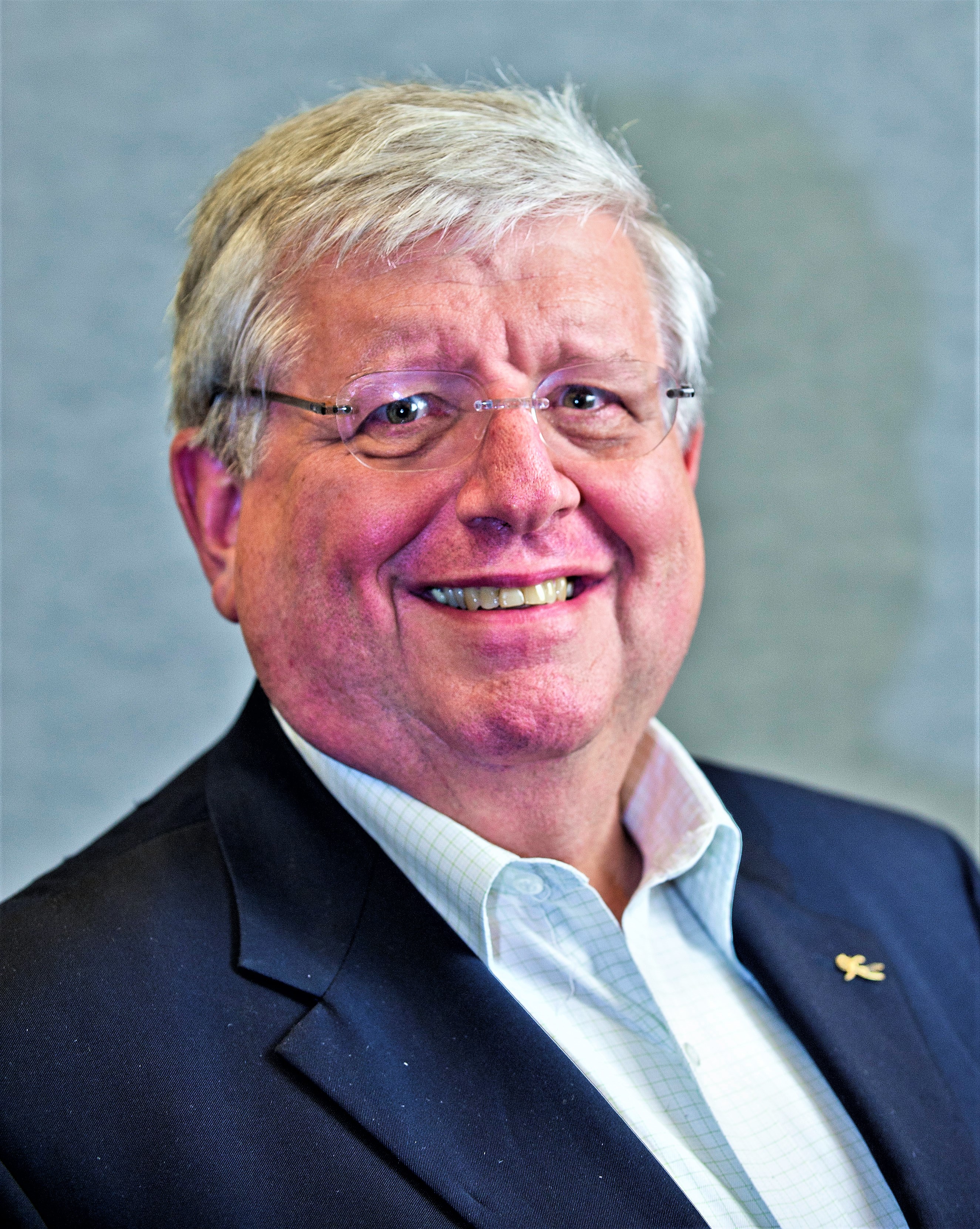How Could the T-Mobile/Sprint Merger Affect the TV Repack?
The professional video industry's #1 source for news, trends and product and tech information. Sign up below.
You are now subscribed
Your newsletter sign-up was successful
WASHINGTON—As policy-makers and analysts absorbed the potential ramification of T-Mobile's plan to acquire Sprint, questions arose about the $26.5 billion deal's impact on other ongoing spectrum issues—including the broadcast TV repack. Some observers expect that T-Mobile will quickly temper its challenges to broadcast spectrum assignments in an effort to lower its profile as it seeks regulatory approval of the merger. Others conjectured about the ripple effects of the deal, including what it means to tower construction and operations if the combined wireless carrier consolidates or reduces its buildout—possibly by reducing its tower count by about 15 percent initially.
Still others point to T-Mobile's funding of translators in rural areas for public TV stations in an effort to accelerate their spectrum moves so that T-Mobile can more quickly use the 600 MHz spectrum it acquired during the incentive auction.
The merger also highlights an irony of sorts since Sprint had its own dealings with broadcasters over a decade ago when it spent approximately $750 million to move the broadcast auxiliary services for ENG of nearly 1,000 TV stations after being allotted the spectrum in the 2 GHz band those operations occupied. The project commenced in 2005 and was completed in 2010.
OBSTACLES TO COMPLETION
Review of the merger plan at the Federal Communications Commission and Department of Justice may also involve issues such as labor relations. T-Mobile has had a "challenging time" with unions, a Washington attorney (who formerly staffed a Capitol Hill committee) told TV Technology. He noted that the White House is paying close attention to the opinions of labor, which may affect its decision—although he expects the merger to be approved by early next year.
Several law firms and trade associations (including the National Association of Broadcasters and CTIA: the Wireless Association) plus regulators (the FCC and DoJ) declined to speak on the record about the T-mobile deal, which surfaced on Sunday.
Legal and financial analysts are split on the likelihood of the merger receiving FCC and DoJ approval, often citing three previous attempts for the companies to join forces plus the failed attempt in 2011 by AT&T to acquire T-Mobile USA for $39 billion from Deutsche Telekom.
The professional video industry's #1 source for news, trends and product and tech information. Sign up below.
BTIG’s Walter Piecyk on Monday gave approval a 40 percent likelihood. Media analysts at MoffettNathanson put the odds at 50-50, while Wells Fargo savants concluded that the deal "won't be easy," noting that "the numbers become harder when looked at purely from a market concentration standpoint.”
"The market seems to be ascribing very low odds to approval," according to New Street Research analyst Jonathan Chaplin. Jeffries & Co. concluded that the FCC "seems open to evaluating the deal on its merits, though the DoJ could be an obstacle.”
A Washington attorney (who like others would only speak on background because of possible client conflicts) told TV Technology that he believes both DoJ and the FCC will approve the merger by 2019; he also expects the companies will push for an even quicker approval before the November elections, which could affect the policy landscape.
Michael Calabrese, director of the Wireless Future Project at New America, a non-profit think tank, called the merger "both tentative and relatively far off." Nonetheless, he cited reasons why the deal makes sense in light of T-Mobile's $8 billion purchase of 600 MHz spectrum, which it picked up in the broadcast incentive auction.
[Read: T-Mobile Takes The Most TV Spectrum For $8 Billion]
"I have no reason to believe they would change course," Calabrese told TV Technology. "The combined company would still need 600 MHz spectrum as soon as possible for indoor propagation; the lack of low-band spectrum has undermined T-Mobile’s quality-of-service for many years."
Calabrese also looked toward the emerging Fifth Generation (5G) ecosystems, noting that, "some degree of building penetration and economical coverage in sparsely populated areas is a competitive necessity."
T-Mobile's funding , much of it channeled through PBS, has helped PBS relocate 48 translators as of late April, with 144 more in progress, according to a report this week in a public TV periodical.
LOOKING FOR A BELLWETHER
Some analysts contend that the pending AT&T acquisition of Time Warner may affect approval of the T-Mobile/Sprint alliance. To their eyes, if AT&T beefs up its content armory, it will be appropriate for it to have another formidable carrier competitor rather than two smaller wireless providers. Together T-Mobile and Sprint have a total of 126 million customers, compared to Verizon's 150 million and AT&T's 142 million, according to Strategy Analytics.
[Read: T-Mobile, Fox TV Stations Partner On Repack]
Initial proponents of the merger point out that T-Mobile's extensive 600 MHz holdings and Sprint's collection of 2.5GHz spectrum plus both companies' mid-band spectrum assets will generate efficiencies for a variety of opportunities, including Internet of Things and other services, some of which are also envisioned for ATSC 3.0 features.
Another looming challenge is the FCC's auction of millimeter wave spectrum, scheduled to begin in November. According to analysts, T-Mobile may not have to bid extensively in that auction if (via the merger) it has control of Sprint's 2.5 GHz spectrum for capacity and propagation. T-Mobile President/CEO John Legere, who would head the merged company, said that he may ask the FCC for a waiver for T-Mobile and Sprint to coordinate their bidding strategies in that auction.
Towers are another factor in the merger proposal. According to the MoffettNathanson analysis, the merger could trigger the decommissioning of up to 35,000 towers and construction of 10,000 new towers. T-Mobile's current infrastructure would form the basis of the new facilities. Today the two companies operate a total of 110,000 towers, the analysts said, adding that 50,000 more towers may go up "over the coming years" if the merger is approved.
Depending on timing, that construction binge could affect the repack tower timetable, given the demand for building crews. Wells Fargo's analysis predicted that the combined tower construction budget of T-Mobile and Sprint could reach $40 billion in capital investment over three years.
Legere's focus on 5G as a strength of the combined company also poses a challenge to cable companies such as Comcast and Charter, which have put an emphasis on their wireless capabilities as their legacy cable video operations have lost subscribers.
As for the proposed merger's impact on the broadcast repack, most analysts have largely overlooked the potential connection so far, as they focus on more urgent competitive and financial aspects of the deal. One thing is certain: the tumultuous shifts in the airwaves will ripple through the many sectors of the digital eco-system during the next few years.
For comprehensive news and information on the repack, visit TV Technology's repack silo.
Gary Arlen, a contributor to Broadcasting & Cable, NextTV and TV Tech, is known for his visionary insights into the convergence of media + telecom + content + technology. His perspectives on public/tech policy, marketing and audience measurement have added to the value of his research and analyses of emerging interactive and broadband services. Gary was founder/editor/publisher of Interactivity Report, TeleServices Report and other influential newsletters; he was the long-time “curmudgeon” columnist for Multichannel News as well as a regular contributor to AdMap, Washington Technology and Telecommunications Reports; Gary writes regularly about trends and media/marketing for the Consumer Technology Association's i3 magazine plus several blogs.

